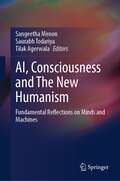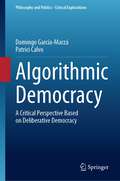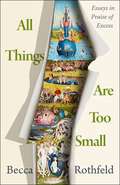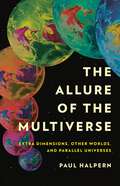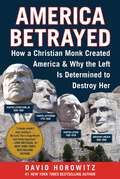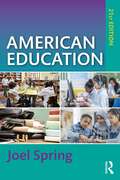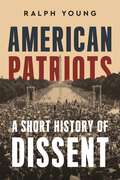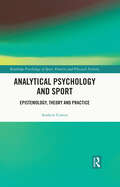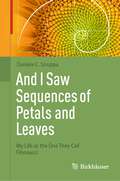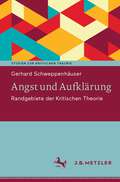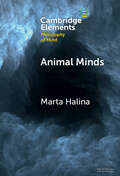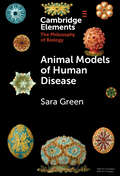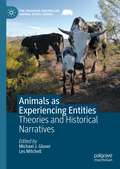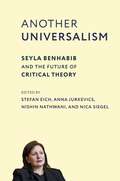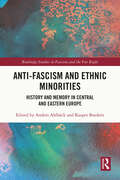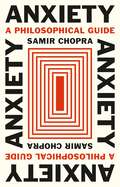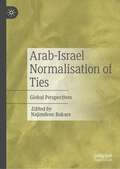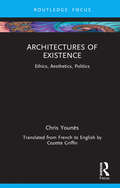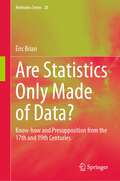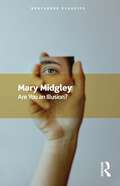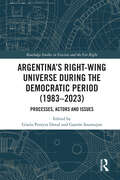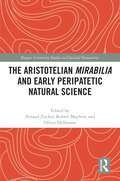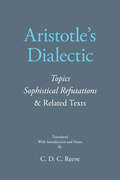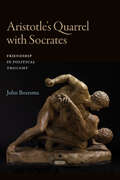- Table View
- List View
AI, Consciousness and The New Humanism: Fundamental Reflections on Minds and Machines
by Sangeetha Menon Saurabh Todariya Tilak AgerwalaThis edited volume presents perspectives from computer science, information theory, neuroscience and brain imaging, aesthetics, social sciences, psychiatry, and philosophy to answer frontier questions related to artificial intelligence and human experience. Can a machine think, believe, aspire and be purposeful as a human? What is the place in the machine world for hope, meaning and transformative enlightenment that inspires human existence? How, or are, the minds of machines different from that of humans and other species? These questions are responded to along with questions in the intersection of health, intelligence and the brain. It highlights the place of consciousness by attempting to respond to questions with the help of fundamental reflections on human existence, its life-purposes and machine intelligence. The volume is a must-read for interdisciplinary and multidisciplinary researchers in humanities and social sciences and philosophy of science who wish to understand the future of AI and society.
Algorithmic Democracy: A Critical Perspective Based on Deliberative Democracy (Philosophy and Politics - Critical Explorations #29)
by Domingo García-Marzá Patrici CalvoBased on a deliberative democracy, this book uses a hermeneutic-critical methodology to study bibliographical sources and practical issues in order to analyse the possibilities, limits and consequences of the digital transformation of democracy. Drawing on a two-way democracy, the aim of this book is intended as an aid for thinking through viable alternatives to the current state of democracy with regard to its ethical foundations and the moral knowledge implicit in or assumed by the way we perceive and understand democracy. It is intended to stimulate reflection and discussion on the basis that, by addressing what we understand as democracy, we can inevitably influence the reality known as democracy. Democracy’s evident regression in today’s world makes this all too apparent: it has become a hostage to all kinds of autocracies and technopopulisms, which are supported to a greater or lesser extent by the current algorithmic revolution.
All Things Are Too Small: Essays in Praise of Excess
by Becca RothfeldA glorious call to throw off restraint and balance in favor of excess, abandon, and disproportion, in essays ranging from such topics as mindfulness, decluttering, David Cronenberg, and consent.In her debut essay collection, “brilliant and stylish” (The Washington Post) critic Becca Rothfeld takes on one of the most sacred cows of our time: the demand that we apply the virtues of equality and democracy to culture and aesthetics. The result is a culture that is flattened and sanitized, purged of ugliness, excess, and provocation.Our embrace of minimalism has left us spiritually impoverished. We see it in our homes, where we bring in Marie Kondo to rid them of their idiosyncrasies and darknesses. We take up mindfulness to do the same thing to our heads, emptying them of the musings, thoughts, and obsessions that make us who we are. In the bedroom, a new wave of puritanism has drained sex of its unpredictability and therefore true eroticism. In our fictions, the quest for balance has given us protagonists who aspire only to excise their appetites. We have flipped our values, Rothfeld argues: while the gap between rich and poor yawns hideously wide, we strive to compensate with egalitarianism in art, erotics, and taste, where it does not belong and where it quashes wild experiments and exuberance.Lush, provocative, and bitingly funny, All Things Are Too Small is a subversive soul cry to restore imbalance, obsession, gluttony, and ravishment to all domains of our lives.
The Allure of the Multiverse: Extra Dimensions, Other Worlds, and Parallel Universes
by Paul Halpern&“A rich and rewarding history of one of the most astounding ideas in physics and astronomy&” (Marcia Bartusiak) – that the universe we know isn&’t the only one Our books, our movies—our imaginations—are obsessed with extra dimensions, alternate timelines, and the sense that all we see might not be all there is. In short, we can&’t stop thinking about the multiverse. As it turns out, physicists are similarly captivated. In The Allure of the Multiverse, physicist Paul Halpern tells the epic story of how science became besotted with the multiverse, and the controversies that ensued. The questions that brought scientists to this point are big and deep: Is reality such that anything can happen, must happen? How does quantum mechanics &“choose&” the outcomes of its apparently random processes? And why is the universe habitable? Each question quickly leads to the multiverse. Drawing on centuries of disputation and deep vision, from luminaries like Nietzsche, Einstein, and the creators of the Marvel Cinematic Universe, Halpern reveals the multiplicity of multiverses that scientists have imagined to make sense of our reality. Whether we live in one of many different possible universes, or simply the only one there is, might never be certain. But Halpern shows one thing for sure: how stimulating it can be to try to find out.
America Betrayed: How a Christian Monk Created America & Why the Left Is Determined to Destroy Her
by David HorowitzAmerica is now engulfed in a crisis that goes to the very foundations of its democracy. To destroy Americans&’ pride in their heritage and undermine their will to defend it, the attacks on America&’s heritage begin with malicious slanders intended to turn the American dream of equality and freedom into a &“white supremacist&” nightmare. We are told America, from its inception, has been a &“racist&” nation that treats minorities as less than human. We are told America deserves to be destroyed. This destructive lie is now the official doctrine of the Biden White House, the &“woke&” Pentagon, the Democratic Senate, and the curricula of American schools. America Betrayed restores the true history of America&’s achievements and its role as a beacon of freedom. Framed by an account of Martin Luther&’s history and ideas, David Horowitz demonstrates that racial progress in America originates not from Leftist policy but from its founding ideals. America Betrayed is a history and a manifesto focused on the current war to save our country and restore the dignity and freedom of the individual.
American Education (Sociocultural, Political, and Historical Studies in Education)
by Joel SpringFeaturing current information and challenging perspectives on the latest issues and forces shaping the American educational system—with scholarship that is often cited as a primary source—Joel Spring introduces readers to the historical, political, social and legal foundations of education and to the profession of teaching in the United States. In his signature straightforward, concise approach to describing complex issues, he illuminates events and topics that are often overlooked or whitewashed, giving students the opportunity to engage in critical thinking about education. Students come away informed on the latest topics, issues and data and with a strong knowledge of the forces shaping the American educational system. Updated throughout, the 21st edition of this clear, authoritative text remains fresh and up-to-date, reflecting the many changes in education that have occurred since the publication of the previous edition. New coverage includes: Discussion of “culture wars” and critical race theory Parental rights versus the goals of common education LGBTQIA+ students’ rights Discussion of the current administration’s educational policies
American Patriots: A Short History of Dissent
by Ralph YoungA concise history that proves that dissent is patrioticThe history of America is a history of dissent. Protests against the British Parliament’s taxation policies led to the American Revolution and the creation of the United States. At the Constitutional Convention the founders put the right to protest in the First Amendment of the Bill of Rights. In the nineteenth century, dissenters protested against the War of 1812 and the Mexican War, they demanded the abolition of slavery, suffrage for women, and fair treatment for workers. In the twentieth century, millions of Americans participated in the Civil Rights Movement, the antiwar movement, and second-wave feminism. In the twenty-first century, hundreds of thousands protested the war in Iraq, joined the 2011 Occupy movement, the 2017 Women’s March, and the 2020 Black Lives Matter uprisings. The crowds grew larger than ever, but the sentiments expressed were familiar. There have been dissenting Americans for as long as there has been an America.In American Patriots, historian Ralph Young chronicles the key role dissent has played in shaping the United States. He explains that activists are not protesting against America, but pushing the country to live up to its ideals. As he guides the reader through the history of protest, Young considers how ordinary Americans, from moderates to firebrands, responded to injustice. He highlights the work of organizations like SNCC and ACT UP, and he follows iconic individuals like Ida B. Wells-Barnett and Woody Guthrie, charting the impact of their dissent. Some of these protesters are celebrated heroes of American history, while others are ordinary people, frequently overlooked, whose stories show that change is often accomplished through grassroots activism.Yet not all dissent is equal. In 2021, thousands of rioters stormed the US Capitol, and Americans on both sides of the aisle watched the destruction with horror. American Patriots contrasts this attack with the long history of American protest, and challenges us to explore our definition of dissent. Does it express a legitimate grievance or a smokescreen for undermining democracy? What are the limits of dissent? Where does dissent end and sedition begin?In a time when legitimate dissent is framed as unpatriotic, Young reminds us of the dissenters who have shaped our country’s history. American Patriots is a necessary defense of our right to demand better for ourselves, our communities, and our nation.
Analytical Psychology and Sport: Epistemology, Theory and Practice (Routledge Psychology of Sport, Exercise and Physical Activity)
by Andrew CowenAnalytical Psychology and Sport: Epistemology, Theory and Practice introduces the epistemology and psychology of C.G. Jung to the sport psychology readership. In doing so, it considers for the first time the implications of analytical psychology with respect to theorising on well-established psychological phenomena in sport, including confidence, mental toughness and psychological momentum. To date, sport psychology has given limited consideration to how epistemology itself informs the development of knowledge. In light of Jung’s epistemological contributions and more recent developments in psychology, this new book explores how a renewed focus on the philosophy of science can help facilitate the development of sport psychology as a scientific discipline. This new research volume investigates analytical psychology in relation to a number of novel topics, including person–athlete interdependence and the psychology of performance variation, and will be key reading for academics and students of sport and exercise psychology, analytical psychology and related disciplines.
And I Saw Sequences of Petals and Leaves: My Life as the One They Call Fibonacci
by Daniele C. StruppaIn this captivating historical novel, Daniele Struppa skillfully weaves a fictional autobiography, bringing Fibonacci to life with vivid details of his upbringing and adult years in Medieval Europe. As we explore the historical context of Fibonacci's time, we delve into the intriguing aspects of a bygone era, painting a compelling picture of a man whose contributions to mathematics continue to resonate today. From his groundbreaking work on congruent numbers to the famous numerical sequence that bears his name, the author invites readers to imagine the creative sparks that ignited Fibonacci's mathematical innovations. When historical evidence is elusive, accuracy and passion are seamlessly combined, offering plausible scenarios grounded in documented facts. A meticulously crafted apparatus of notes distinguishes fact from fiction, providing readers with a clear guide to navigate this enthralling reconstruction of Fibonacci's life. Step into the medieval world ofLeonardo Fibonacci, one of the most celebrated mathematicians in history, and discover the man behind the mathematical genius. Mathematicians and curious readers alike will appreciate the allure of Fibonacci's mathematical brilliance.
Angst und Aufklärung: Randgebiete der Kritischen Theorie (Studien zur Kritischen Theorie)
by Gerhard SchweppenhäuserÄngste sind Teil einer krisenhaften Lebenswelt. Die Texte des Bandes gehen von einer Beobachtung der Dialektik der Aufklärung aus: Diese sieht die Intention der Aufklärung darin, „von den Menschen die Furcht zu nehmen und sie als Herren einzusetzen“, doch die „vollends aufgeklärte Erde“ erscheine „im Zeichen triumphalen Unheils“. In den vorliegenden Aufsätzen geht es darum, wie konkrete Furcht unter Bedingungen sozialer Herrschaft in diffuse Ängste diffundiert. Die Texte analysieren und kommentieren gesellschaftliche Phänomene, wie sie sich im Medium philosophischer, literarischer und bildkünstlerischer Bearbeitung darstellen. Thematisiert werden auch sozialphilosophische und -wissenschaftliche Modelle der Beschreibung sowie die Analyse und Kritik soziokultureller Phänomene. Alle Texte sind verbunden durch eine ideologiekritische Perspektive auf die Widersprüchlichkeit von Aufklärung – und durch die Erinnerung an Grundpositionen des kritischen Materialismus. Gerhard Schweppenhäuser zählt zu den führenden Kennern und Kommentatoren der Kritischen Theorie und ist Gründungs- und Mitherausgeber der Zeitschrift für kritische Theorie.
Animal Minds (Elements in Philosophy of Mind)
by null Marta HalinaAnimal minds are complex and diverse, making them difficult to study. This Element focuses on a question that has received much attention in the field of comparative cognition: 'Do animals reason about unobservable variables like force and mental states?' The Element shows how researchers design studies and gather evidence to address this question. Despite the many virtues of current methods, hypotheses in comparative cognition are often underdetermined by the empirical evidence. Given this, philosophers and scientists have recently called for additional behavioral constraints on theorizing in the field. The Element endorses this proposal (known as 'signature testing'), while also arguing that studies on animal minds would benefit from drawing more heavily on neuroscience and biology.
Animal Models of Human Disease (Elements in the Philosophy of Biology)
by null Sara GreenThe crucial role of animal models in biomedical research calls for philosophical investigation of how and whether knowledge about human diseases can be gained by studying other species. This Element delves into the selection and construction of animal models to serve as preclinical substitutes for human patients. It explores the multifaceted roles animal models fulfil in translational research and how the boundaries between humans and animals are negotiated in this process. The book also covers persistent translational challenges that have sparked debates across scientific, philosophical, and public arenas regarding the limitations and future of animal models. Among the are persistent tensions between standardization and variation in medicine, as well as between strategies aiming to reduce and recapitulate biological complexity. Finally, the book examines the prospects of replacing animal models with animal-free methods. The Element demonstrates why animal modeling should be of interest to philosophers, social scientists, and scientists alike.
Animals as Experiencing Entities: Theories and Historical Narratives (The Palgrave Macmillan Animal Ethics Series)
by Michael J. Glover Les MitchellThis volume explores the experiences of those with little or no power—usually, although not exclusively, animals. The theme of animals as experiencing entities is what links the chapters and characterises the volume. Broadly each author in this volume contributes in one of two ways. The first group, in Section 1, theoretically engages animal subjectivity, animal experiences, and ways in which these are to some extent accessible and knowable to humans. The second group of authors, in Section 2, offer narrative accounts about specific animals or groups of animals and explore to some extent their subjective historical experiences. In summary, the first section diversely theorises about animal experiences, while the second section’s authors assume animals’ subjective experiences and construct narratives that take into account how animals might have subjectively experienced historical phenomena.
Another Universalism: Seyla Benhabib and the Future of Critical Theory (New Directions in Critical Theory #84)
by Stefan Eich, Anna Jurkevics, Nishin Nathwani, and Nica SiegelSeyla Benhabib’s ongoing work has expanded the range and scope of critical theory beyond its origins to address questions of gender, migration, and difference. This book brings together an ensemble of leading theorists and younger voices to explore new dimensions of Benhabib’s thought across critical theory, feminism, and democratic theory, foregrounding the intricate relationship between critique and universality.Another Universalism provides both a wide-ranging and comprehensive engagement with Benhabib’s path-breaking interventions and a panoramic tour of the cutting edge of critical theory today. Contributors take part in key debates about the field’s past and future, tackling subjects such as the relationship between democracy and cosmopolitanism, the role of law in emancipatory struggles, human domination of nature, the deprovincialization of critical theory concerning questions of race and empire, as well as Hannah Arendt’s continuing significance. Covering a wide range of debates and themes, Another Universalism is united by a core question: How can universal norms of human freedom, equality, and dignity be reconciled with particular contexts, especially ones of exclusion, difference, and adversity? Searching for universalisms that emerge from the concrete struggles of emancipatory movements, this book points toward an expansive, inclusive, and radical democratic vision.
Anti-Fascism and Ethnic Minorities: History and Memory in Central and Eastern Europe (Routledge Studies in Fascism and the Far Right)
by Anders Ahlbäck Kasper BraskénAnti-Fascism and Ethnic Minorities explores how, and to what extent, fascist ultranationalism elicited an anti-fascist response among ethnic minority communities in Eastern and Central Europe. The edited volume analyses how identities related to class, ethnicity, gender and political ideologies were negotiated within and between minorities through confrontations with domestic and international fascism. By developing and expanding the study of Jewish anti-fascism and resistance to other minority responses, the book opens the field of anti-fascism studies for a broader comparative approach. The volume is thematically located in Central and Eastern Europe, cutting right across the continent from Finland in the North to Albania in the Southeast. The case studies in the fourteen research chapters are divided into five thematic sections, dealing with the issues of 1) minorities in borderlands and cross-border antifascism, 2) minorities navigating the ideological squeeze between communism and fascism, 3) the role of intellectuals in the defence of minority rights, 4) the anti-fascist resistance against fascist and Nazi occupation during World War II, as well as 5) the conflictual role ascribed to ethnicity in post-war memory politics and commemorations. The editors describe their intersectional approach to the analysis of ethnicity as a crucial category of analysis with regard to anti-fascist histories and memories. The book offers scholars and students valuable historical and comparative perspectives on minority studies, Jewish studies, borderland studies, and memory studies. It will appeal to those with an interest in the history of race and racism, fascism and anti-fascism, and Central and Eastern Europe.
Anxiety: A Philosophical Guide (Moral Psychology Of The Emotions Ser.)
by Samir ChopraHow philosophy can teach us to be less anxious about being anxious by understanding that it&’s an essential part of being humanToday, anxiety is usually thought of as a pathology, the most diagnosed and medicated of all psychological disorders. But anxiety isn&’t always or only a medical condition. Indeed, many philosophers argue that anxiety is a normal, even essential, part of being human, and that coming to terms with this fact is potentially transformative, allowing us to live more meaningful lives by giving us a richer understanding of ourselves. In Anxiety, Samir Chopra explores valuable insights about anxiety offered by ancient and modern philosophies—Buddhism, existentialism, psychoanalysis, and critical theory. Blending memoir and philosophy, he also tells how serious anxiety has affected his own life—and how philosophy has helped him cope with it.Chopra shows that many philosophers—including the Buddha, Kierkegaard, Nietzsche, Freud, and Heidegger—have viewed anxiety as an inevitable human response to existence: to be is to be anxious. Drawing on Karl Marx and Herbert Marcuse, Chopra examines how poverty and other material conditions can make anxiety worse, but he emphasizes that not even the rich can escape it. Nor can the medicated. Inseparable from the human condition, anxiety is indispensable for grasping it. Philosophy may not be able to cure anxiety but, by leading us to greater self-knowledge and self-acceptance, it may be able to make us less anxious about being anxious.Personal, poignant, and hopeful, Anxiety is a book for anyone who is curious about rethinking anxiety and learning why it might be a source not only of suffering but of insight.
Arab-Israel Normalisation of Ties: Global Perspectives
by Najimdeen BakareThis book focuses on rapprochement and normalisation between Israel and some Arab countries within the context of global and regional geopolitics, bringing together broader perspectives on transformations resulting from this. The analysis is rooted in a historical and cultural construction of the region as an Islamic sphere viewing Israel as a perpetuation of the Western colonial project in the region. It analyses how this normalisation must not be treated as a novel phenomenon, but as a reconstruction of the past and continuity in tradition geared at regional stability, signifying a wider shift in the structure of the global international system. The first section addresses the international perspectives of the changing dynamics through the lens of US domestic politics, disengagement plans, China’s increasing understanding of the geopolitics of the Abrahamic world. It equally pays enough attention to the attendant implications of this normalisation. The second section of the book explores the reflections of regional (state and non-state) actors, such as Turkey, Iran, Syria, Pakistan, and Hezbollah, and the catalysing effects of this normalisation within and beyond the region. The book is a rich resource for scholars of regional and international relations, in particular Middle East studies. It provides useful reading material for both undergraduate and graduate students of Political Science, think tanks, diplomats, and IR experts and policy analysts, who are desirous of having rich theoretical and empirical underpinnings of unfolding realities in the larger Middle East.
Architecture against Democracy: Histories of the Nationalist International
by Reinhold Martin Claire ZimmermanExamining architecture&’s foundational role in the repression of democracy Reinhold Martin and Claire Zimmerman bring together essays from an array of scholars exploring the troubled relationship between architecture and antidemocratic politics. Comprising detailed case studies throughout the world spanning from the early nineteenth century to the present, Architecture against Democracy analyzes crucial occasions when the built environment has been harnessed as an instrument of authoritarian power. Alongside chapters focusing on paradigmatic episodes from twentieth-century German and Italian fascism, the contributors examine historic and contemporary events and subjects that are organized thematically, including the founding of the Smithsonian Institution, Ellis Island infrastructure, the aftermath of the Paris Commune, Cold War West Germany and Iraq, Frank Lloyd Wright&’s domestic architecture, and Istanbul&’s Taksim Square. Through the range and depth of these accounts, Architecture against Democracy presents a selective overview of antidemocratic processes as they unfold in the built environment throughout Western modernity, offering an architectural history of the recent &“nationalist international.&” As new forms of nationalism and authoritarian rule proliferate across the globe, this timely collection offers fresh understandings of the role of architecture in the opposition to democracy. Contributors: Esra Akcan, Cornell U; Can Bilsel, U of San Diego; José H. Bortoluci, Getulio Vargas Foundation; Charles L. Davis II, U of Texas at Austin; Laura diZerega; Eve Duffy, Duke U; María González Pendás, Cornell U; Paul B. Jaskot, Duke U; Ana María León, Harvard U; Ruth W. Lo, Hamilton College; Peter Minosh, Northeastern U; Itohan Osayimwese, Brown U; Kishwar Rizvi, Yale U; Naomi Vaughan; Nader Vossoughian, New York Institute of Technology and Columbia U; Mabel O. Wilson, Columbia U.
Architectures of Existence: Ethics, Aesthetics, Politics
by Chris YounèsArchitectures of Existence proposes that philosophical thinking (ecosophical thinking) can inform the way we engage with our world and its inhabitants, as architects, designers and planners, but also as individuals, as people, and as a society. In Art et existence, Maldiney states: "For us, to inhabit is to exist". This book aims to unfold, extend, articulate and thicken this postulate by interweaving architecture, city, landscape, literature and philosophy. It takes up the synergistic lines of long-term research carried out from an ecosophical perspective. Such an attitude explores an art of existing in multiplicity, singularity and openness, manifesting the critical dimension through a reinterpretation of the knotting of the trajectories of time, humanity and its becoming. Insisting on what is between things and beings as well as on what is happening, regenerating, recycling, reviving, saving, diversifying, sparing, recreating, meditating: and so caring. These are all eco-rhythms of a different type between human and non-human, to consider ourselves in the world. In an era of uncertainty and climate threats, this book develops the margins of possibility offered by the subject of architecture. This book will be of interest to researchers and students of architecture, urban planning and philosophy.
Are Statistics Only Made of Data?: Know-how and Presupposition from the 17th and 19th Centuries (Methodos Series #20)
by Éric BrianThis book examines several epistemological regimes in studies of numerical data over the last four centuries. It distinguishes these regimes and mobilises questions present in the philosophy of science, sociology and historical works throughout the 20th century. Attention is given to the skills of scholars and their methods, their assumptions, and the socio-historical conditions that made calculations and their interpretations possible. In doing so, questions posed as early as Émile Durkheim’s and Ernst Cassirer’s ones are revisited and the concept of symbolic form is put to the test in this particular survey, conducted over long period of time. Although distinct from a methodological and epistemological point of view, today these regimes may be found together in the toolbox of statisticians and those who comment on their conclusions. As such, the book is addressed to social scientists and historians and all those who are interested in numerical productions.
Are You an Illusion? (Routledge Classics)
by Mary MidgleyIn an impassioned defence of the importance of our own thoughts, feelings and experiences, the renowned philosopher Mary Midgley shows that there’s much more to our selves than a jumble of brain cells. Exploring the remarkable gap that has opened up between our understanding of our sense of self and today’s science, Midgley argues powerfully and persuasively that the rich variety of our imaginative life cannot be contained in the narrow bounds of a highly puritanical materialism that simply equates brain and self. Engaging with the work of prominent thinkers, Midgley investigates the source of our current attitudes to the self and reveals how ideas, traditions and myths have been twisted to fit in, seemingly naturally, with science’s current preoccupation with the physical and material. Midgley shows that the subjective sources of thought – our own experiences – are every bit as necessary in helping to explain the world as the objective ones such as brain cells. Are You an Illusion? offers a salutary analysis of science’s claim to have done away with the self and a characteristic injection of common sense from one of our most respected philosophers into a debate increasingly in need of it. This Routledge Classics edition includes a new Foreword by Stephen Cave.
Argentina’s Right-Wing Universe During the Democratic Period: Processes, Actors and Issues (Routledge Studies in Fascism and the Far Right)
by Gisela Pereyra Doval Gastón SouroujonArgentina’s Right-Wing Universe During the Democratic Period provides a comprehensive analysis of the course of right-wing politics in the country in the last 40 years. In 1983, after the fall of a violent military regime, Argentina began the longest period of democratic stability in its history—40 years marked by economic, institutional, social and political crises. This book examines the trajectory of the different right-wing organisations and ideological developments during these years, seeking to understand both the distinctions and the continuities that lie beneath its metamorphoses. Argentina has always acted as a laboratory in which to appreciate how the major problems and questions that concern those who have studied the right-wing in recent decades are translated into a particular political culture. In an international scenario marked by the social and political growth of different right-wing movements, some of which pose a threat to liberal democracies, the study of the Argentine case can provide greater clarity and a different perspective on problems that transcend this specific national case. This book will be of interest to scholars of Argentinian and Latin American politics and history, as well as specialists on the comparative politics of the radical right.
The Aristotelian Mirabilia and Early Peripatetic Natural Science (Rutgers University Studies in Classical Humanities)
by Arnaud ZuckerThis is the first volume devoted to the sections of the Aristotelian Mirabilia on natural science, filling a significant gap in the history of the Aristotelian study of nature and especially of animals. The chapters in this volume explore the Mirabilia, or De mirabilibus auscultationibus (On Marvelous Things Heard), and its engagement with the natural sciences. The first two chapters deliver an introduction to this work: one a discussion of the history of the text; the other a discussion of Aristotelian epistemology and methodology, and the role of the Mirabilia in that context. This is followed by eight chapters that, together, are effectively a commentary on those sections of the Mirabilia with close connections to Aristotle’s Historia animalium and to a number of Theophrastus’ scientific treatises. Finally, the volume ends with two chapters on thematic topics connected to natural science running throughout the work, namely color and disease. The Aristotelian Mirabilia and Early Peripatetic Natural Science should prove invaluable to scholars and students interested in the ancient Greek study of nature, ancient philosophy, and Aristotelian science in particular.
Aristotle's Dialectic: Topics, Sophistical Refutations, and Related Texts (The New Hackett Aristotle)
by AristotleAristotle's Dialectic fits seamlessly with the other volumes in the New Hackett Aristotle Series, enabling Anglophone readers to study these works in a way previously not possible. The Introduction describes the book that lies ahead, explaining what it is about, what it is trying to do, and how it goes about doing it. Sequentially numbered, cross-referenced endnotes provide the information most needed at each juncture, while a detailed Index indicates the places where focused discussion of key notions occurs.
Aristotle's Quarrel with Socrates: Friendship in Political Thought (SUNY series in Ancient Greek Philosophy)
by John BoersmaAristotle's Quarrel with Socrates is an account of the role friendship plays in ancient political thought. Examining Platonic dialogues and Aristotle's ethical and political treatises, John Boersma makes the case that the different stances Aristotle and Socrates take toward politics can be traced to their divergent accounts of friendship. Aristotle's Quarrel with Socrates brings to the fore the tension that exists between the philosophic life as exemplified by Socrates and the life devoted to politics. It goes on to argue that Aristotle's account of a friendship of the good, based on human excellence, can reduce, not to say eliminate, this tension, enabling the development of a political community that is organized for action in history.
